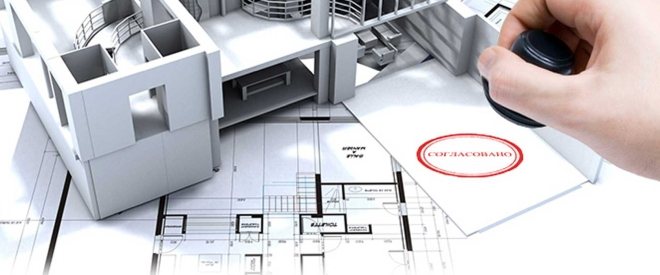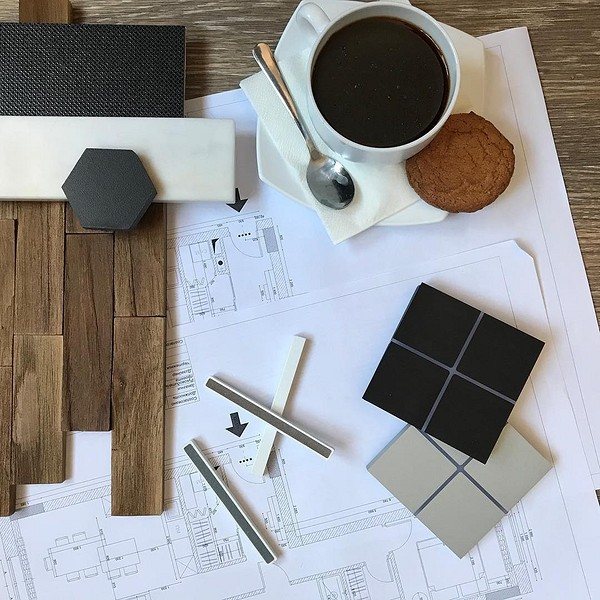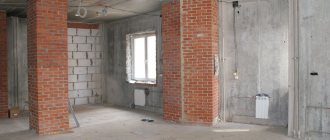The desire to improve business profitability sometimes requires redevelopment of non-residential property. Before starting work on redevelopment of premises in a residential building or non-residential building, it is necessary to prepare a project and approve it with government agencies.
Redevelopment is a large-scale change in the design of a room. This could be changing the floor, wall configuration, moving or displacing windows and doors, altering load-bearing walls, etc.
The City Cadastral Bureau helps to prepare the necessary documents, prepare a project for the redevelopment of non-residential premises, coordinate it and obtain permission in Moscow and the Moscow region in a short time.
Examples of work
- Question: Who is authorized to apply for approval of redevelopment in non-residential premises?
Answer: The owner of the premises or an attorney by proxy has the right to apply for approval of a redevelopment project in a non-residential premises.
- Question: Is approval required for the redevelopment of non-residential premises located in a non-residential building?
Answer: The need to coordinate the redevelopment of non-residential premises located in a non-residential building depends on the requirements of local regulations. If we consider the situation in relation to the city of Moscow, then it is not necessary to coordinate the redevelopment in such a room, but in order to justify the changes and their further recording in the technical inventory authorities and Rosreestr information, it is advisable to prepare appropriate project documentation.
- Question: What is the difference between approving redevelopment in residential and non-residential premises?
Answer: Depending on the functional purpose, redevelopment in non-residential premises in some cases must undergo an additional stage of approval by Rospotrebnadzor, the Center for Epidemiology and Hygiene, the Department of Underground Structures and other authorities.
- Question: The non-residential premises are planned to be rented out, but there is information about unapproved redevelopment. Will there be any problems with registering the contract?
Answer: Information about the presence of redevelopment in non-residential premises can become a problem when registering a long-term lease agreement. The redevelopment must first be agreed upon or justified by design documentation, depending on the location of the premises (in a residential or non-residential building).
- Question: Is it possible in the process of cooperation with you to convert this premises into residential?
Answer: Possibly, but before that it is necessary to prepare the appropriate design documentation and go through certain procedures for transferring the premises from one type to another.
What is unauthorized redevelopment - 2 definitions
Unauthorized (uncoordinated) redevelopment - redevelopment that was carried out without prior approval of the project.
This type of redevelopment is distinguished by the fact that it was carried out in accordance with accepted requirements and standards (for example, SanPiN or SNiP), but was not coordinated with the organizations that control this issue.
Expert opinion
Makarov Igor Tarasovich
Legal consultant with 8 years of experience. Specialization: criminal law. Extensive experience in document examination.
This type of redevelopment differs from the previous one in that it cannot be coordinated. In this case, you will have to correct the violations or return the premises to its original state.
Each non-residential premises (and the building as a whole) corresponds to its BTI floor plan.
BTI (Bureau of Technical Inventory) maintains a register of all real estate objects and stores all data on redevelopments carried out in premises and buildings.
Technical passport of non-residential premises (technical passport) is a document that records the latest approved floor plan.
In the case of an agreed redevelopment, the BTI inspector checks its compliance with the project and updates the data in the technical passport.
If the redevelopment done does not correspond to the project or was not agreed upon, the inspector is also obliged to enter this information into the technical passport for the non-residential premises.
Uncoordinated redevelopment is marked on the BTI plans with red lines. Read our previous article to learn more about what line colors mean and how to remove red lines from a floor plan.
When approval of redevelopment of non-residential premises is required
Technical changes to non-residential premises in residential / non-residential buildings must be agreed upon according to the laws of the Russian Federation. Main regulatory legal acts:
- Town Planning Code.
- Housing Code of the Russian Federation.
- Code of Administrative Offences.
- Moscow Government Decree No. 508-PP.
The content of Article 1 clarifies the difference between standard construction, repair work and reconstruction. Includes terms and concepts.
Article 25 contains information regarding the concepts of redevelopment and reconstruction.
Art. 7.21 and 7.22 establish the amount of the fine for carrying out redevelopment without the approval of state authorities.
Regulates the approval of a project for the redevelopment of non-residential premises in a residential apartment building in Moscow.
The redevelopment of non-residential premises should be approved when the following changes are made:
- installation/demolition of walls, partitions;
- reconstruction of door/window openings;
- increasing the area of the room;
- combining several rooms into one;
- delimitation of one room into several rooms;
- equipment with new engineering equipment, sanitary equipment;
- changing the external elements of the building (balconies, loggias, etc.);
- installation/demolition of stairs;
- changing the height/level/structure of the ceiling and floor;
- connection of communication systems;
- relocation of a sanitary facility.
Coordination of the redevelopment of non-residential premises is necessary only for large-scale work. When planning cosmetic repairs, a certificate is not required.
What are the dangers of illegal apartment redevelopment?
To find out what the consequences of remodeling an apartment without approval are, you need to refer to the norms of the Code of Administrative Offenses of the Russian Federation. However, a fine for remodeling an apartment without permission is not the only sanction for the copyright holder. If he cannot confirm that the completed work does not threaten the reliability and stability of the building, the Ministry of Housing and Construction will issue an order to restore the object to its original condition. All expenses for such will be borne by the offender. If you do not comply with the order, a corresponding lawsuit will be filed in court.
Fine for illegal redevelopment under the Code of Administrative Offenses of the Russian Federation
Let's look at the consequences of illegal redevelopment of an apartment according to the law. This offense is described in Article 7.21 of the Code of Administrative Offenses of the Russian Federation. Changes were made to this norm in April 2021. Now the wording of Art. 7.21 of the Code of Administrative Offenses is as follows:
Calculator of the cost and timing of our services - here
- unauthorized reconstruction and redevelopment of residential premises entails a fine for citizens from 2000 to 2500 rubles;
- if the violation is committed by an official, he will be fined in the amount of 4,000 to 5,000 rubles;
- The fine for redevelopment without permission for an organization will be from 40,000 to 50,000 rubles.
- For violations committed by an individual entrepreneur, the same fine is collected as for a legal entity. faces.
A protocol is drawn up to submit materials for collection of a fine. It will describe the elements of the offense, information about the owner and the object. Please note that paying a fine does not relieve you of the obligation to legitimize the work performed or to restore the object to its original condition.

If the redevelopment was carried out without approvals, but did not entail violations in the construction sector, it can be legalized through the Ministry of Housing and Construction.
Regional fines
Regions can also introduce fines for violating the rules for carrying out work in residential and non-residential buildings. Since the fine for remodeling an apartment is approved at the federal level, regions can hold liable:
- for violation of work rules;
- for damage, damage or destruction of an object;
- for failure to comply with the instructions of the housing inspectorate and other supervisory authorities.
The Moscow Law on Administrative Offenses provides for a fine of 4,000 rubles. for damage to residential premises in an apartment building. In addition to a fine, the violator will be required to compensate or eliminate the damage caused. To compensate for damage or compel the alteration of the premises, a separate claim is filed in civil court.
| No. | Documents used when approving redevelopment | Description |
| 1 | Title document | Only the owner can carry out redevelopment. The title document can be an extract from the Unified State Register of Real Estate, a certificate of title |
| 2 | Owners' consent | The consent of all owners of the premises is required for redevelopment. Consent must be formalized in writing and submitted for approval. |
| 3 | Redevelopment project | The project contains a description of all redevelopment work and requirements for their safety. The project can be produced by an organization consisting of SRO designers. |
| 4 | Technical conclusion | The technical report describes the condition of the load-bearing structures for redevelopment. Based on the results of the inspections, the technical report draws a conclusion about the admissibility of the work, and draws up calculations for loads and structural reinforcements. |
| 5 | Acceptance committee report | The act is drawn up in the Moscow Housing Inspectorate after completion of the work. Specialists will check that redevelopment solutions comply with the project and technical conclusion. |
| 6 | Technical plan. | The main document on the basis of which the object is placed on cadastral registration with information entered into the Unified State Register of Real Estate. After redevelopment, the technical plan indicates the new characteristics of the room. The technical plan is prepared by a cadastral engineer after examining the building. |

An example is illegal redevelopment associated with expanding the area of an apartment beyond the overall dimensions of an apartment building. Such work is prohibited, so legalization will end in refusal.
Consequences of illegal redevelopment in non-residential buildings
In non-residential buildings, redevelopment work does not need to be coordinated. More precisely, this procedure does not involve contacting the Ministry of Housing, although the owner will still have to order a technical plan and register the changes in Rosreestr. But the customer approves the project for the work himself, after which he can begin redevelopment.
Taking into account the rules set out above, there is no penalty for illegal redevelopment of non-residential premises in a non-residential building. The owner can be cited only for violating safety during work, for damaging someone else’s property, or causing harm to people.
- Expert commentary. If the redevelopment is not legalized, consequences occur only when violations are revealed. Finding out what the repairs were in someone else's apartment is quite difficult. Therefore, many facts of illegal work are not revealed. However, discrepancies in the configuration of the premises will certainly be identified when transactions are completed. This will be grounds for refusal to register the agreement.
Required documents
The stages of obtaining permission for repair work depend on the type of redevelopment. The list of documents submitted for approval to government agencies is approximately the same for any option:
- Title documents for the premises (the tenant provides written permission from the owner).
- Technical passport of the premises. Includes certificates 1A, 5, explication, floor plan (ordered from the BTI at the initiative of the applicant).
- Technical conclusion.
- Redevelopment project for non-residential premises.
- Conclusion of supervisory authorities on project documentation.
Minor redevelopment of non-residential premises in a residential building, apartment building
This involves the demolition/construction of partitions, changing the location of openings inside the building, replacing equipment, etc.
Stages of obtaining approval for the redevelopment of non-residential premises in a residential building:
- Preparation of documents.
- Development of the project and technical report.
- Approval of design documentation for non-residential premises in the supervisory authorities (Rospotrebnadzor, Federal State Budgetary Institution, etc.).
- Submitting an application and documents to the Moscow Housing Inspectorate.
- Getting permission.
Significant redevelopment of non-residential premises in a residential building
May include the following work:
- Installation and dismantling of openings in load-bearing walls.
- Installation of new entrances, ramps, changes to external walls.
- Installation of new sanitary rooms.
- Gender change.
Approval stages:
- Preparation of a package of documents.
- Development of a project, technical report (if load-bearing structures are affected or the work has already been completed, the technical report is developed by the designers of the apartment building).
- Coordination of the project with government agencies (Rospotrebnadzor, Federal State Budgetary Institution, etc.).
- Submitting an application to the Moszhilinspektsiya (in case the external appearance of the building is affected, the Moszhilinspektsiya sends the design documentation to the Moskomarkhitektura for analysis and obtaining a conclusion).
- Getting the result.

Redevelopment of non-residential premises in a non-residential building
Permission from the Moscow Housing Inspectorate is not required. To obtain BTI documentation in black lines, redevelopment is justified by design documentation completed by an organization that is a member of the SRO. If repair work affects façade elements or a new entrance to the premises is required, these changes must be approved by the State Budgetary Institution “GlavAPU” (Moscomarchitecture). Approval of a project for redevelopment of non-residential premises (changes in façade elements) in this case takes from 1.5 to 2 months.
How to legitimize actions?
Administrative approval for the redevelopment of non-residential premises is carried out in accordance with the requirements of the residential complex (Federal Law No. 188) in several stages:
- Preparation of the project (what is a redevelopment project, what does it consist of and what is it needed for?).
- Preparation of technical documentation.
- Contacting government agencies and obtaining consent to work.
- Carrying out repair work.
- Receiving a certificate from the admissions committee.
- Inspection of the property by a cadastral engineer.
- Registration of changes in cadastral registration.
Where to apply for permission?
Making a project requires careful preparation and knowledge; you can do it yourself by visiting the following authorities:
- Rospotrebnadzor;
- fire supervision;
- Committee on Urban Planning and Architecture;
- Committee for the Protection of Architectural Monuments (if required);
- housing inspection.
You can also entrust documentary planning to a private real estate company, which will help with the design of the project. Each authority reviews the applicant’s request and documents and issues a general conclusion. The voting results can be recorded in a free-form protocol.
We talked more about the procedure for obtaining permission to redevelop non-residential premises in this material.
What documents should I provide?
After receiving the project, the owner applies to the urban planning department of the municipality of the locality with the following documents:
- statement;
- passport of the applicant (owner or authorized representative) or constituent documents for legal entities;
- design documentation;
- certificate of ownership;
- technical passport of the building/premises;
- conclusion of regulatory authorities.
After receiving permission, the owner has the right to carry out planned construction work and redevelopment in accordance with the design and technical conclusion, while it is prohibited to deviate from the requirements specified in the documents.
The work is checked and accepted by a cadastral engineer, who records changes in the technical passport. To call a specialist after construction is completed, contact the BTI. If no deviations from the project requirements are found, a report on hidden work and a report on completed redevelopment are drawn up.
With the received act, the owner applies to the final authority - Rosreestr, where the property is cadastrally registered or changes are registered in the register. From this moment on, the redevelopment is considered legal. The owner of the non-residential premises is given an extract from the Unified State Register of Real Estate.
Deadlines
The current legislation establishes the time frame for consideration of an application:
- approval will take 1 month;
- for final registration - 3 months.
Price
The cost of legalizing redevelopment depends on the following factors:
- region of location of the immovable property;
- square footage of the room;
- type of redevelopment;
- calling specialists;
- contacting a lawyer.
On average, by region for redevelopment (documentary approval) you will have to pay the following amounts:
- purchase of a standard project – 15,000-30,000 rubles;
- purchase of an individual project – up to 150,000 rubles;
- approval – 30,000 rubles;
- for each document 2000 rubles.
Who can prepare the project?
The City Cadastral Bureau provides assistance in coordinating the redevelopment of non-residential premises in Moscow and the region. We prepare projects and assist in obtaining the necessary documents for large-scale work in restaurants, shops, leisure centers, beauty salons, offices, and warehouses. We cooperate with organizations whose premises are located in residential and non-residential buildings.
Services are provided by experienced specialists, focusing on the laws of the Russian Federation and municipal regulations in this area.
Liability and fines for illegal work
When redevelopment of non-residential premises is carried out without the required documentary approval and design plans, the owner bears administrative responsibility in accordance with the Code of Administrative Offenses of the Russian Federation.
The illegality of work is discussed in Article 7.24, part 2, according to which a fine is imposed:
- for a civilian – from 1000 to 1500 rubles;
- for an official – from 2000 to 3000 rubles;
- for a legal entity - from 20,000 to 30,000 rubles.
Along with monetary punishment, the violator is obliged to return the object to its original state or to legitimize unauthorized changes.
What is included in unauthorized redevelopment in an apartment building
Some work can be done without legalization by simply registering it with the BTI. These include:
- Increasing the size of the kitchen, bathroom and room due to the corridor or storage room.
- Glazing of balconies.
- Installation of new equipment (without disrupting communications).
- Expansion of the doorway.
- Unification of the bathroom.
For any other intervention in the original housing project drawn up in the technical plan, written permission must be obtained. To do this, you will need an architectural plan for the future housing developed by engineers, confirmation of ownership and signatures of other owners.
If there is neither one nor the other, the repair is considered unauthorized. It will be the same if a positive decision was received from the municipality, but during the renovation process the owner changed the approved architectural design. This will become clear immediately after construction is completed. The controlling organization will appoint a commission that will check the compliance of the work performed with the plan.
Such an object cannot be put into operation until it is brought into the required technical condition. All definitions and rules regarding the approval process are specified in the Housing Code of the Russian Federation, articles 25-29.

Photo: Instagram @mb_designstudio
Work that will definitely not be approved: moving a bathroom to a residential area, demolishing and covering a ventilation duct, closing access to risers and meters, converting an attic, adding an attic, attaching a loggia to floors above the first, demolishing a load-bearing wall, moving water supply risers, etc.
- Kitchen
Kitchens with gas: what repairs are indicated and contraindicated for them
Where to complain to residents of an apartment building about illegal redevelopment of non-residential premises
Most often, residents complain about redevelopment in commercial premises when they are concerned about the work carried out on objects located on the ground floors of apartment buildings. In this case, you can complain to several authorities at once: the HOA, the Management Company, but in reality the issue is resolved only by the Housing Inspectorate.
You can submit an appeal by visiting the institution in person. Complaints are prepared in advance or on the spot. After this, an employee will come to check the premises and make sure that its condition corresponds to that indicated in the technical passport. The situation will further develop depending on what changes are made.







